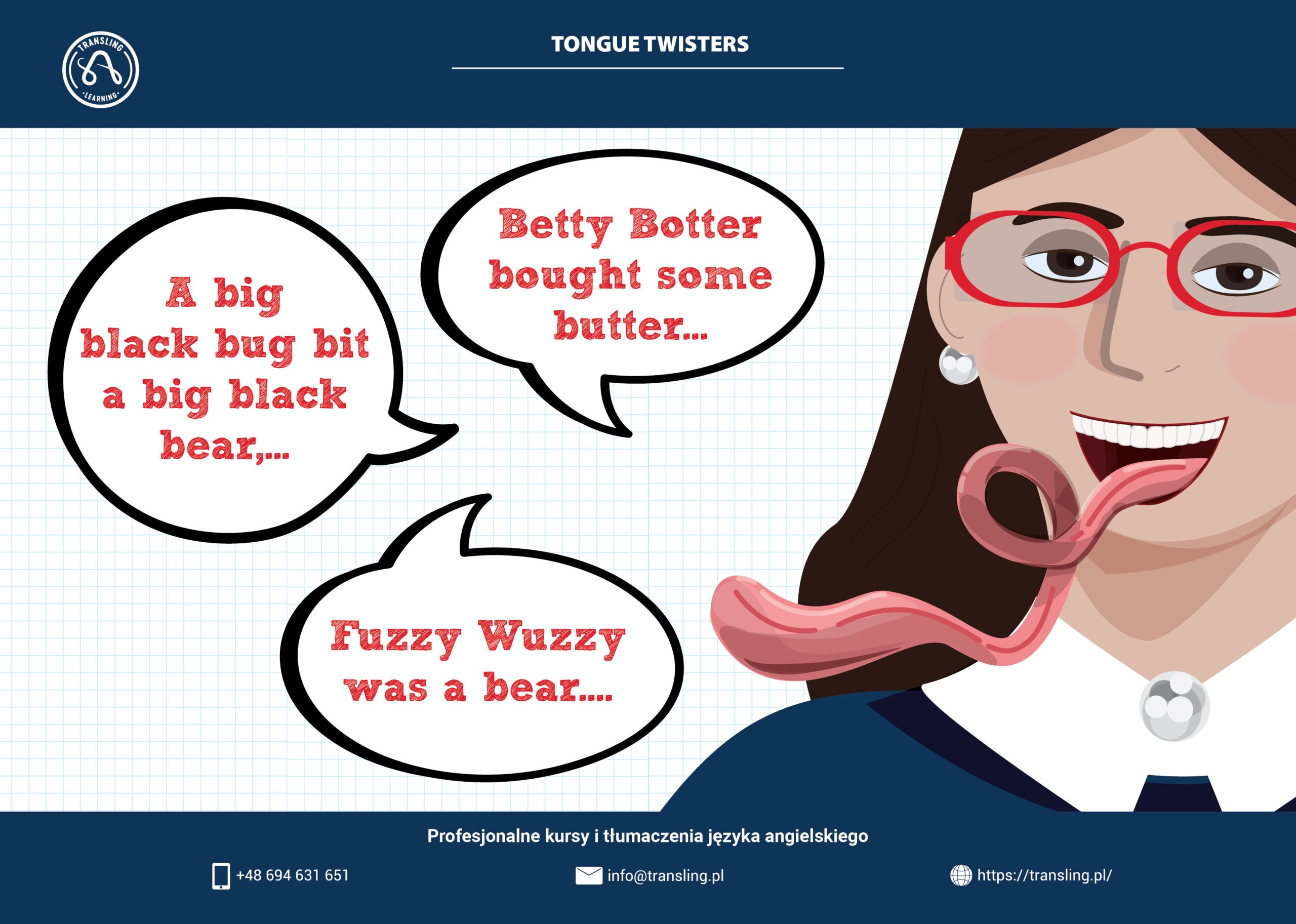Tongue twisters
czyli łamańce językowe
Łamańce językowe tzw. tongue twisters stanowią świetne ćwiczenie wymowy i wszelkich elementów fonetycznych jak np. intonacja czy rytm przy tym są dobrą formą zabawy zarówno dla młodszych jak i starszych co zwiększa motywację do dalszej pracy i w konsekwencji prowadzi do lepszej efektywności nauki.
Takie ćwiczenie można wykorzystać np. przed prezentacją czy ważnym wystąpieniem, spotkaniem czy wykładem w celu polepszenia dykcji czy elokucji oraz artykulacji poszczególnych dźwięków w języku angielskim a zwłaszcza tych, które sprawiają największe problemy gdyż nie występują w języku ojczystym jak /θ/ czy /ð/.
Tongue twisters are a great way to practise pronunciation and all phonetic elements such as intonation or rhythm, and additionally are great fun for both younger and older students, which increases motivation for further work and consequently leads to better learning effectiveness. Such an exercise can be used, for example, before a presentation or an important speech, meeting or lecture to improve diction or elocution and articulation of individual sounds in English, especially those that cause the most problems because they do not occur in the native language, such as /θ/ or /ð/.

Tongue twisters, łamańce językowe:
A big black bug bit a big black bear, made the big black bear bleed blood.
How much wood would a woodchuck chuck if a woodchuck could chuck wood? He would chuck, he would, as much as he could, and chuck as much wood as a woodchuck would if a woodchuck could chuck wood.
woodchuck (UK) = a small animal with short legs and rough, reddish-brown fur that lives in North America (świstak)
to chuck = to throw something carelessly (rzucać, ciskać)
How much wood would a woodpecker peck if a woodpecker could peck wood?
woodpecker = a bird that uses its strong beak to make holes in tree t
runks in order to find insects to eat (dzięcioł)
to peck = when a bird pecks, it bites, hits, or picks up something small with its beak (dziobać)
She sells sea shells on the seashore.
The seashells she sells are seashells she is sure
Peter Piper picked a peck of pickled peppers
A peck of pickled peppers Peter Piper picked
If Peter Piper picked a peck of pickled peppers
Where’s the peck of pickled peppers Peter Piper picked?
to pick = to choose
a peck of sth = a big amount of sth (miara objętości równa 9,09 litra; garniec, kupa, masa czegoś)
pickled = kept in vinegar (marynowany, piklowany)
Betty Botter bought some butter
But she said the butter’s bitter
If I put it in my batter, it will make my batter bitter
But a bit of better butter will make my batter better
So ‘twas better Betty Botter bought a bit of better butter
batter = a mixture of flour, eggs, and milk or another liquid, used to make pancakes or to cover food before frying it (płynne ciasto, panierka)
bitter = unpleasantly sharp taste (gorzki)
Fuzzy Wuzzy was a bear. Fuzzy Wuzzy had no hair. Fuzzy Wuzzy wasn’t fuzzy, was he?
fuzzy = 1. having shapes that do not have clear edges, or not clear because of other unwanted noises making it difficult to hear (niewyraźny, rozmyty, zamazany)
2. (about hair) in an untidy mass of tight curls (kędzierzawy)
How can a clam cram in a clean cream can?
clam = a type of sea creature with a shell in two parts that can close together tightly, and a soft body that can be eaten (małż)
to cram in = to force or stuff a lot of things into a small place (wpychać, wciskać się)
I thought I thought of thinking of thanking you
The thirty-three thieves thought that they thrilled the throne throughout Thursday
How much ground would a groundhog hog, if a groundhog could hog ground? A groundhog would hog all the ground he could hog, if a groundhog could hog ground.
groundhog (US) = woodchuck (UK)
to hog = to take or use more than your share of something (okupować, zajmować, blokować)
I thought a thought.
But the thought I thought
Wasn’t the thought I thought I thought.
If the thought I thought I thought,
Had been the thought I thought,
I wouldn’t have thought a thought.
If practice makes perfect and perfect needs practice,
I’m perfectly practiced and practically perfect.

